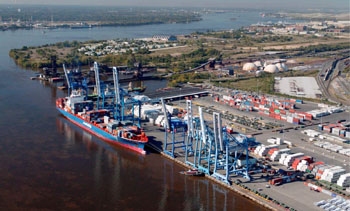Business & Finance Club Magazine - Eye on the Economy - Germany -- Sustainable investment shows no sign of fading away as the world adjusts to the new normal.
Institutional and retail investors across Europe are turning to concepts such as sustainability and social responsibility for security in the wake of the financial crisis.
Straws in the wind include figures showing the UK’s retail investor has more money in green and ethical funds than ever before; annual growth in social responsible investment assets in France of 70 per cent; and a report from Germany showing institutional investors are looking to the sustainable investment process as a source of risk management.
“The financial crisis has highlighted quite neatly the dangers of focusing on the short term,” says Mark Robertson at Eiris, the UK-based ethical research group, which found there was £9.5bn (€11.2bn, $13.7bn) in ethical and green funds at end 2009.
“Ethical investment is about looking at the longer term risks that are out there, such as water scarcity or climate change.”
Three-quarters of German institutional investors cited risk management as the main reason for adopting sustainable investment criteria, in research carried out for Union Asset Management.
“People would expect sustainable investment to allow you to reduce the risk of facing the fat tails of return distributions, particularly on the negative side,” says Alexander Schindler, who is responsible for Union’s institutional business.
“Recent turmoil in the capital markets has shown that risk assessments based entirely on short-term KPIs [key performance indicators] are not adequate,” he adds.
Insurers are particularly risk-averse, with 92 per cent of insurance companies saying risk management is an important reason for choosing sustainable investment.
In France, David Diamond, head of sustainable and responsible investment at AGI Investments Europe, is seeing a similar search for an approach that transcends traditional investment processes.
“There’s a sense of uncertainty, the ground has been shaken, all the foundations we’ve been standing on for so many years have been brought into question. The realisation that markets are less reliable or predictable than one thought means investors have to think about where they want to go and work out a strategy on how to get there.”
The long-running debate around the different flavours of sustainable investment has subsided as investors agree the long-term approach is the key.
In general, when people talk about sustainable investment, they mean an approach to investment where factors such as environmental issues and governance are given greater weight than in traditional investment.
On the other hand, socially responsible investment attempts to add value for investors in dimensions other than financial, such as increased employment or a cleaner environment.
Both, by definition, look to the long term.
Ethical investment, which is becoming increasingly demarcated from the rest, is based on the specific ethical values of the particular investor and is likely to be exclusion-based, avoiding investment in, for example, arms manufacturers or tobacco companies.
Where investors used to look at SRI as an add-on, likely to form a small part of the portfolio, more of them are now looking to add sustainability to the process for the entire portfolio.
Over the past nine months, according to Mr Diamond, AGI Investments Europe has seen an increasing demand for advice on drawing up and implementing SRI policies for entire portfolios.
The investment manager itself has already started to integrate some aspects of its SRI philosophy into its mainstream investment processes, with a specialist team analysing environmental, social and governance issues supporting both SRI and mainstream investment teams.
Union, which is owned by a network of German co-operative banks, manages around €4bn in ethical mandates and as much as €10bn in sustainable mandates, Mr Schindler says. It is no longer just a niche interest here either, he says, as “even if we don’t have a specific ethical investment mandate, the sustainable management of companies is an important factor in our equities investment process”.
He is convinced this is a long term trend rather than a knee-jerk reaction to the financial crisis that will reverse when (and if) things go back to normal.
“It’s not just a theme of the day, it’s a process that started 10 years ago. It was propelled by the crisis for sure, but it’s here to stay.”
French investors have shown even greater commitment to SRI, with assets rising from €16.8bn in 2006 to €50.7bn at the end of last year, according to research group Novethic.
Nearly 70 per cent of that has come from institutional investors.
Mr Schindler even says demand from investors is outstripping capacity among asset managers. This is borne out by the research, which showed investors rating the quality of advice from asset managers as only average.
Mr Diamond warns further that asset managers entering the space must pay attention to their own credibility if they intend challenging investee companies on their practices.
“As a lot of asset managers move into the sustainable space, there is a lot of engaging with companies on these issues [governance, social responsibility, environmental impact].
“One is more legitimate if one has looked internally at these issues in one’s own company.”










